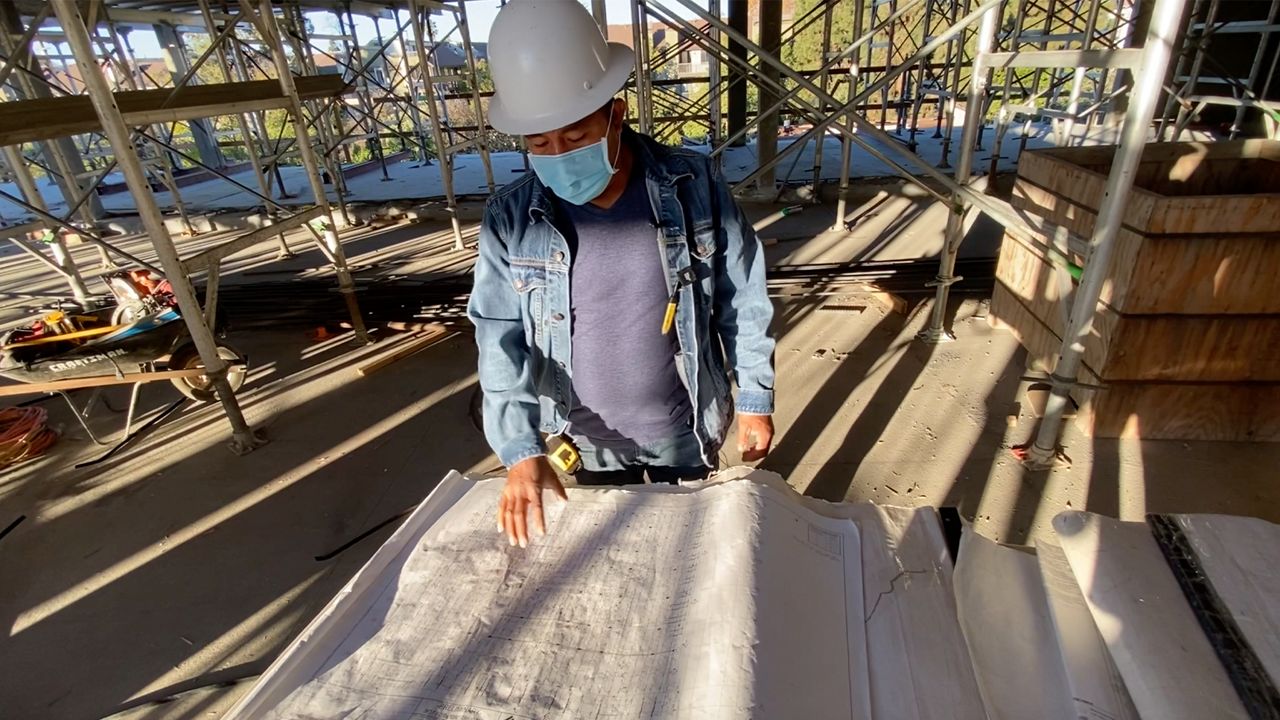PASADENA, Calif. — The blueprints for buildings may be sketched out on paper, but for David Olvera, plans mean nothing if his co-workers are out sick and can’t finish the job.
He’s worked in construction since he was a 21-year-old immigrant from Mexico. Now at 42, he’s a family man, working six days a week to support his two children and wife.
“First family and then my job,” Olvera said.
Construction is regarded as an essential industry that’s been able to continue during this pandemic.
But the job also puts people like Olvera at risk of contracting COVID-19.
Construction workers have the highest positivity rates for asymptomatic cases of any occupation. They work in close quarters, on projects Olvera says aren’t ideal for social distancing.
“It’s a little difficult because we have to work with partners. For example, [workers use] the same measuring tape [and the] the same materials," he said.
Olvera works for Adept Urban, an architecture and construction company in Pasadena. The company began optional COVID-19 testing last month.
He’s open to getting tested to protect his family from the virus, but the company says not all employees are as willing to voluntarily come forward.
Olvera believes some of his colleagues fear they’ll lose their job or miss a paycheck if they test positive.
“Many [colleagues] don’t understand, they think they won’t receive their salary. But the company will pay the salary,” he said.
Robert Montano, the director of development at Adept Urban, says employees shouldn’t worry about job security or pay, but focus on keeping themselves and those around them healthy.
“If somebody tests positive, they're sent home to recover at home. Then we just double up our workforce,” Montano said.
They’ve invested thousands of dollars into on-site testing, hoping to prevent losing millions of dollars, because if workers are out sick projects may be compromised or delayed.
“In terms of project timing, we need to get things done as quickly as possible because the cost of these projects are significant,” said Montano.
Out of the 300-person workforce, Montano says only one employee has tested positive so far, and the company will continue testing weekly until the vaccine becomes available.
Olvera couldn’t find the English words to express the excitement he’ll have once he’s able to be vaccinated, saying, “When we get the shot, we’ll have Esperanza!”
Esperanza, means hope or as Olvera said, one more chance at life and health.



